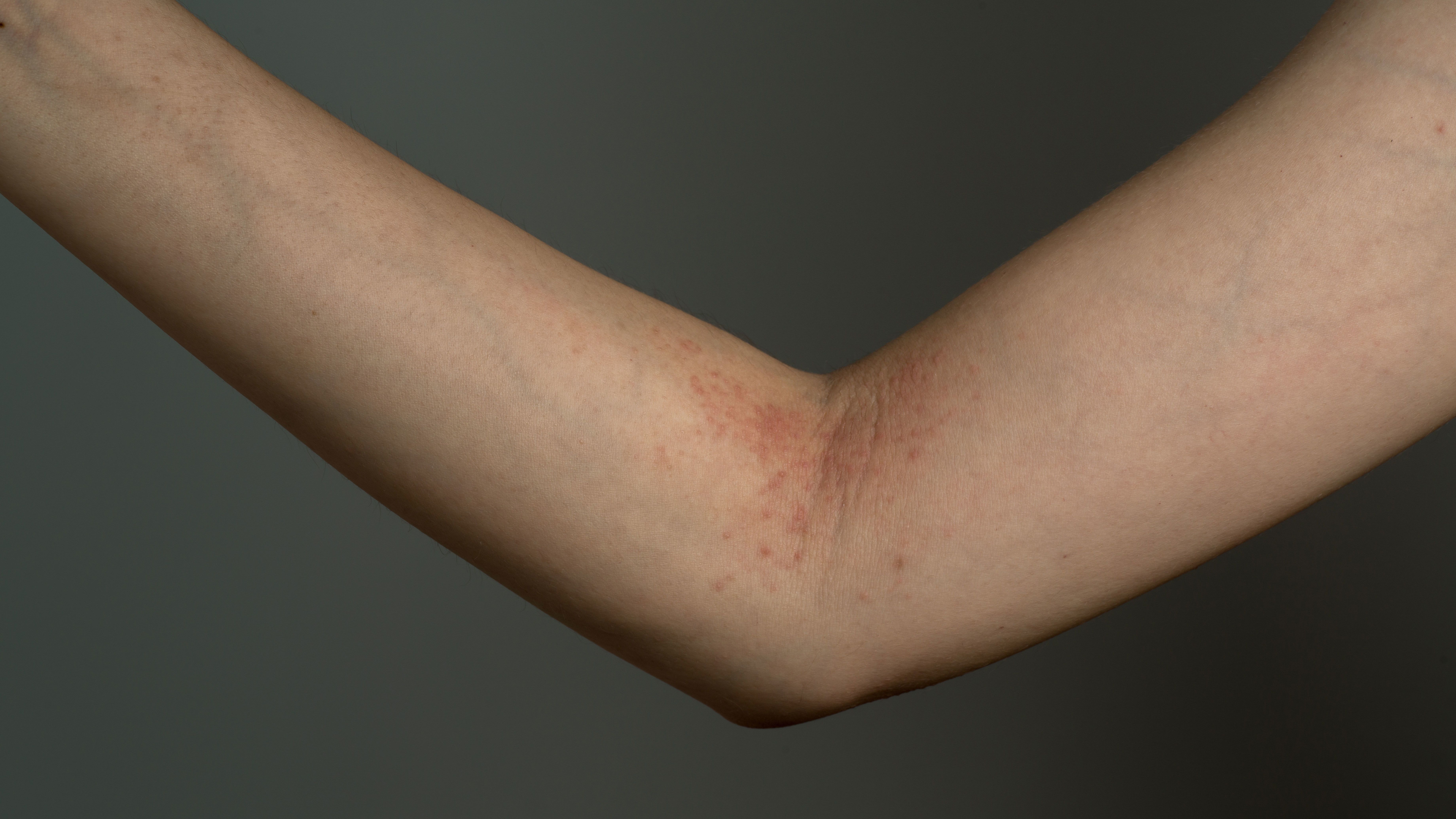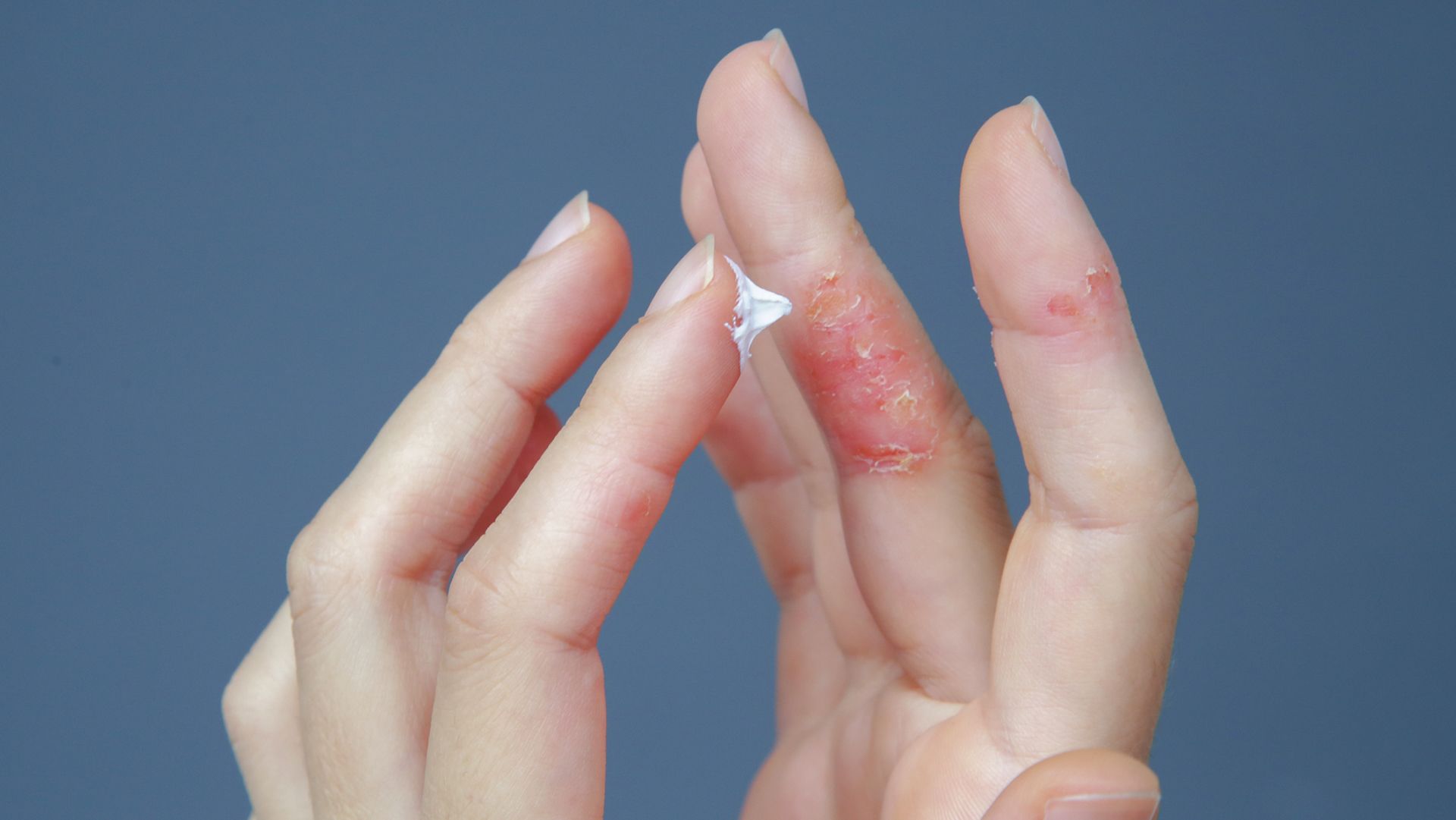Updated on November 9, 2023
Atopic dermatitis is the most common form of eczema. It’s a chronic skin condition characterized by irritated, inflamed, and itchy skin. Symptoms typically flare at times and clear up at other times (though the severity of flares, the duration of flares, and the time between flares can vary significantly from person to person).
There is no cure for atopic dermatitis and treatment is an ongoing process. Treatment focuses on reducing and controlling symptoms, healing damaged skin, and preventing future flares. Topical medications, medications that act on the immune system to reduce inflammation, and keeping the skin hydrated and moisturized are frequently a part of treatment.
Avoiding and reducing exposure to triggers is another important aspect of treatment. A trigger is anything that causes a flare or makes symptoms worse.
Can stress make atopic dermatitis worse?
One potential atopic dermatitis trigger is stress. Psychological stress is often associated with atopic dermatitis flares and more severe atopic dermatitis symptoms. At least part of this association is believed to be caused by the hormones that are produced and released by the body in response to stress, and how those hormones interact with cells in the skin barrier.
Skin barrier basics
The skin barrier is the outer layer of the skin that protects you from anything infectious, toxic, or harmful that might enter the body from the skin. The skin barrier also helps the skin regulate things like body temperature and hydration. The main components are lipids (fatty compounds that are a key component of cells) and proteins.
While the exact causes of atopic dermatitis are not fully understood, one of the contributing factors is a weakened skin barrier. When a person has atopic dermatitis, there are abnormalities in the components that make up the skin barrier. This causes the skin to lose moisture, and also makes the skin less effective at keeping out irritants.
Stress hormones and the skin barrier
Stress hormones activate immune cells in the skin called mast cells. This causes mast cells to release substances that promote inflammation, including histamine. These pro-inflammatory substances can worsen symptoms and cause more damage to the skin barrier (which can create a cycle of worsening symptoms). Chronic stress—stress that lasts for a prolonged period of weeks or months—is associated with chronic inflammation, which can contribute to many serious health conditions.
Atopic dermatitis can also make stress worse
It also needs to be mentioned that living with atopic dermatitis is often stressful. Itch is distressing and often interferes with sleep. The appearance of the skin can affect a person’s self-esteem and contribute to stigma. The burden of the physical and mental symptoms can limit what a person can enjoy in their life.
In addition to its impact on atopic dermatitis, stress can affect many aspects of a person’s physical and mental health. It’s an important topic to discuss with a healthcare provider. If you are not sure how to approach the topic, here are some questions that may help:
- How would you describe your stress level on an average day?
- How many days of the week do you experience stress?
- Do you feel that stress affects your symptoms?
- What are your biggest sources of stress?
- What do you do to cope with stress?
- How much sleep do you get on an average night? Have there been any recent changes to your sleep schedule?
- How satisfied are you with your current treatment for atopic dermatitis?
Also consider exploring different ways to manage stress, such as meditation, creative hobbies, or making more time to do something you enjoy. You may also consider working with a provider that specializes in mental health. Approaches like cognitive behavioral therapy can be helpful for people living with chronic skin conditions.






